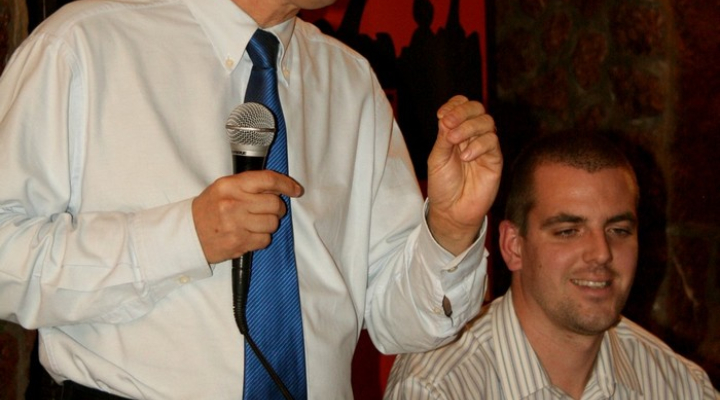Is the crisis of Europe the crisis of Szeklerland, too?
With the motto „Successful Szeklerland” the Hungarian Youth Council of Romania (MIÉRT) and the Youth Council from Gheorgheni Region (GYTIT) organised their MIÉRT Szeklerland Youth Conference between 9 and11 November 2012 in Gheorgheni.
The programme of the event consisted of lectures on the economic situation of Szeklerland and its possibilities for sustainable development. In his presentation entitled Is the crisis of Europe the crisis of Szeklerland, too? Csaba Sógor, member of the European Parliament on behalf of DAHR discussed the European crisis from a local perspective.
According to the MEP, the crisis is first of all a moral one because we are living as if we had two planets, as if our natural resources would never run out. We got into this difficult economic situation because we forgot what peasants already knew well: free cheese can only be found in mousetraps. The victims of this ignorance are mainly the Southern European countries, pointed out Sógor, stressing that the Northern countries with strong work ethics and in which the knowledge and experience of older people is valued, too, can serve us as examples.
Regarding the sustainability of Szeklerland’s development, Csaba Sógor articulated the trio of subsidiarity, solidarity and responsibility: „Subsidiarity offers us autonomy and local decision-making, it can be achieved through small steps and adequate lobbying, this is why it is so important to have a strong representation in Bucharest.”
In his opinion, the image of the well organised and well managed Szekler village exists only in books nowadays, but we still have the possibility to make use of the traditions of our ancestors. „Even though human relationships changed in Szeklerland, too, we should not forget to show solidarity to one another, because the feeling of belonging rests on the nature of societal relationships. The feeling of belonging to a community is a significant component of Szeklerland’s sustainable development”, pointed out the MEP.
Sógor finds that living responsibly means thinking on the long term, protecting our natural treasures and using our resources appropriately so that we can pass on a liveable environment for future generations, too.











